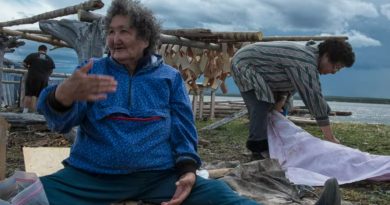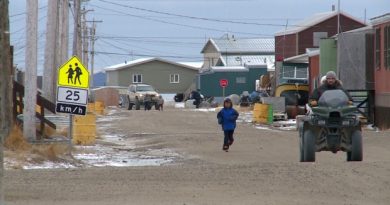Aurora College research team wants to change the way the North looks at food security
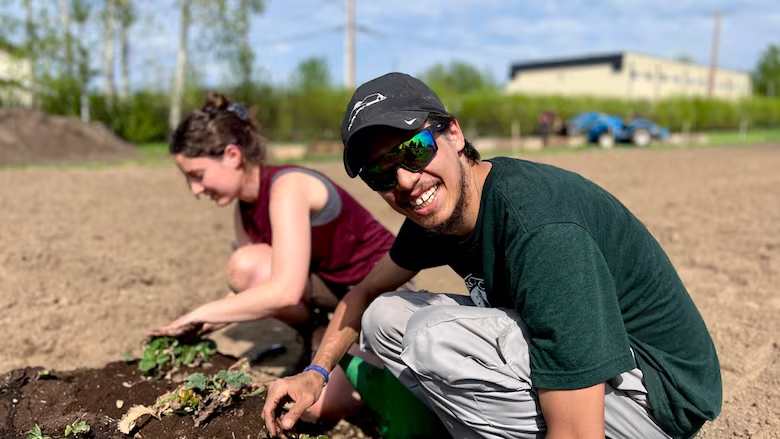
By
In Fort Smith, N.W.T., an Aurora College research team hopes to shift the conversation around food security through community gardening, knowledge sharing and relationship building.
Food security is a growing concern in the North, where costly store-bought food and the impacts of climate change, like wildfires and low water levels, highlight the fragility of local food systems.
Sarah Rosolen manages the South Slave Research Centre at Aurora College and leads the Boreal Berry Patch Collective, which planted berry patches around the community last summer.
“Berries are really important to people here,” she said. “The concept started when we had a bad drought, and the berries in the bush were not plentiful, and people were really concerned about that.”
The group is working on the project with local Indigenous governments and organizations. From saskatoons to strawberries, each group chooses its preferred berry. Eventually, they will map the locations so residents and tourists can find specific berries.
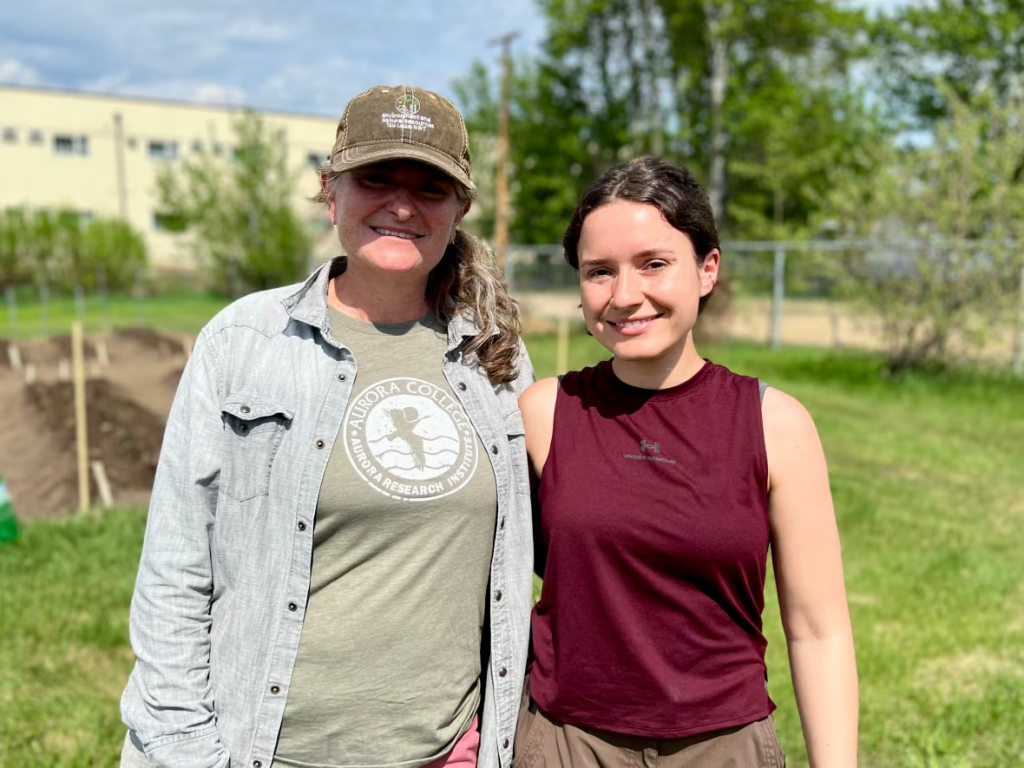
The team also draws on expertise from longtime growers who carry valuable knowledge about what thrives in the region.
“People have been growing here for decades,” Rosolen said. “There’s a lot of history and knowledge about what can be grown here.”
‘It’s really empowering’
This year, the research team is testing which strawberry varieties grow best in Fort Smith. Rosolen said the project is about increasing food security and local harvests.
Trent Stokes is training to become an agricultural technician. He said they want to share the data with the community so they can plant their own high-yielding strawberries.
Stokes said this work matters now more than ever.
“I believe that food security is a major thing that is overlooked in the North,” he said. “We can diminish costs for fresh food … and it’s a lot healthier for people.”
Along with free gardening workshops, the team manages the community garden and is building a network of shared wisdom through its Facebook group and hands-on learning. They’ve set up a plot for the food bank, which they maintain and encourage other growers to contribute produce or help with upkeep.
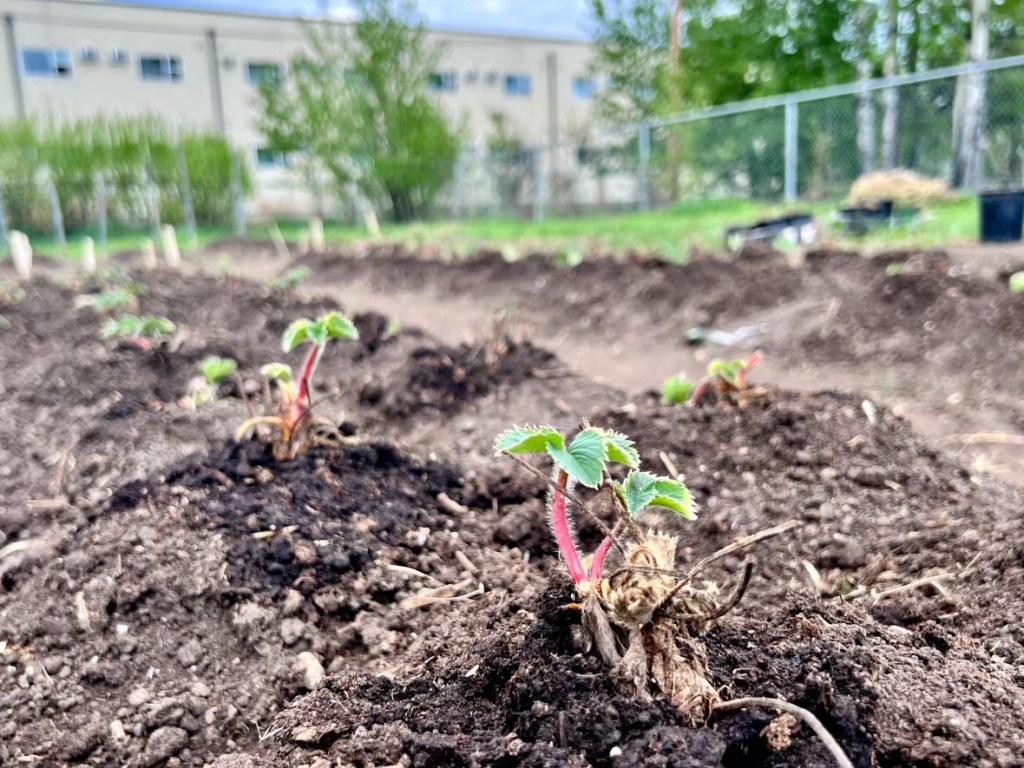
The centre also has initiatives aimed at getting more youth involved in gardening. And they are exploring the idea of planting food in the town’s fire breaks.
“It’s really empowering when people grow their own food … they’re tasting a carrot out of the garden, and they produced that,” she said. “We’re building confidence and capacity around food.”
Another key member of the team is Jane Mariotti, a master’s student at the University of Guelph. She’s in the North looking at soil quality.
Mariotti will collect samples from across the South Slave. They will use those samples to understand how wildfires and the surrounding landscape can affect soil quality.
“We’re going to look at the nutrients in it … that are important for growing crops,” she said. “And see if we can associate any of those nutrients with particular tree species or vegetation communities.
Mariotti says the work will help local growers better understand what crops might thrive in the South Slave. And what conditions to look for to find the best soil.
“We’re just trying to get some baseline fertility data for the area,” she said. “Because there’s not a lot of studies that have been done up here.”
Related stories from around the North:
Canada: External review of Nutrition North food subsidy program possible, minister says, CBC News
Finland: One in 10 Finnish families with young children dealing with food insecurity: survey, Yle News
United States: New farm bill program aims to fight food insecurity in Alaska, Alaska Public Media

